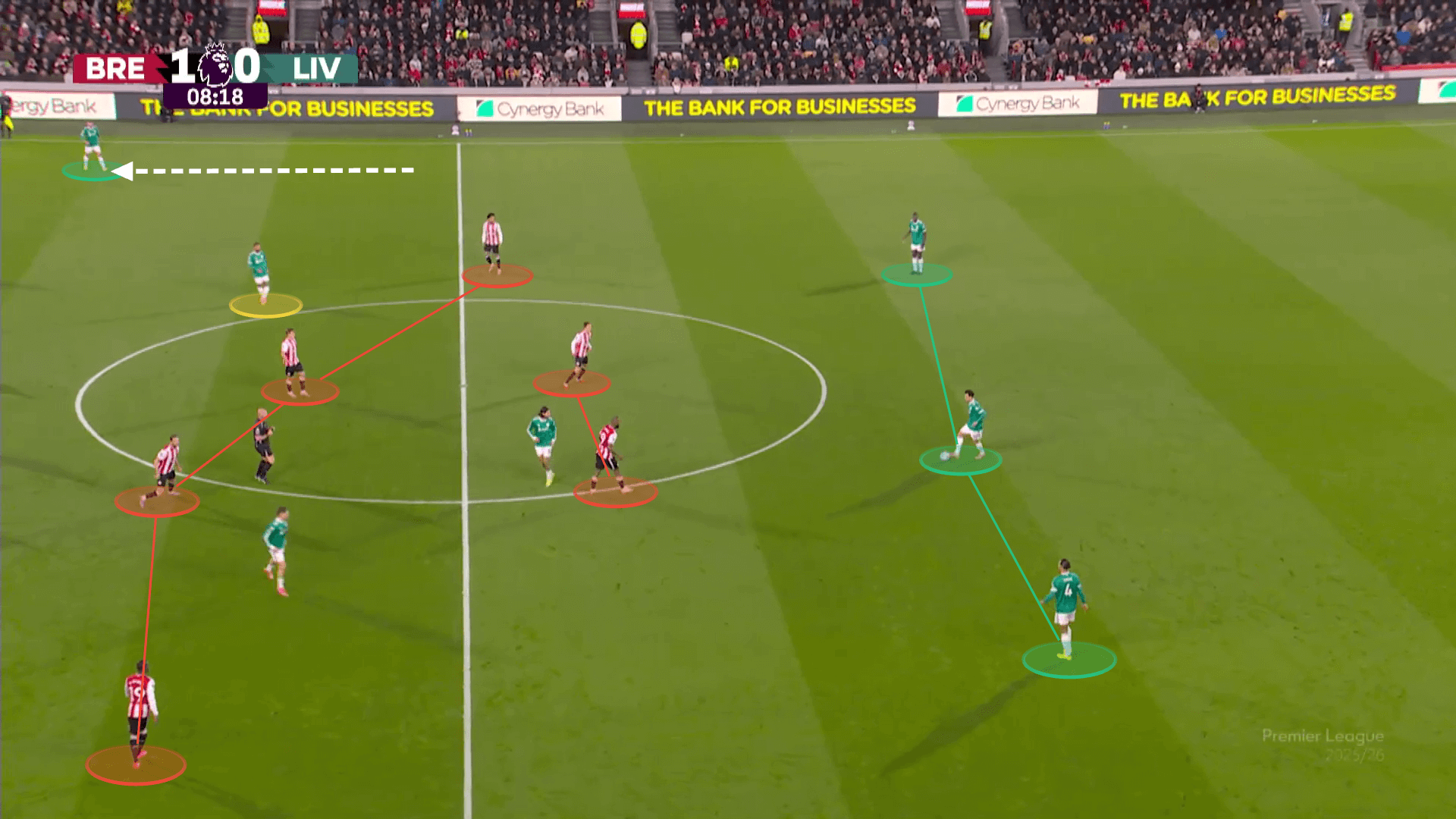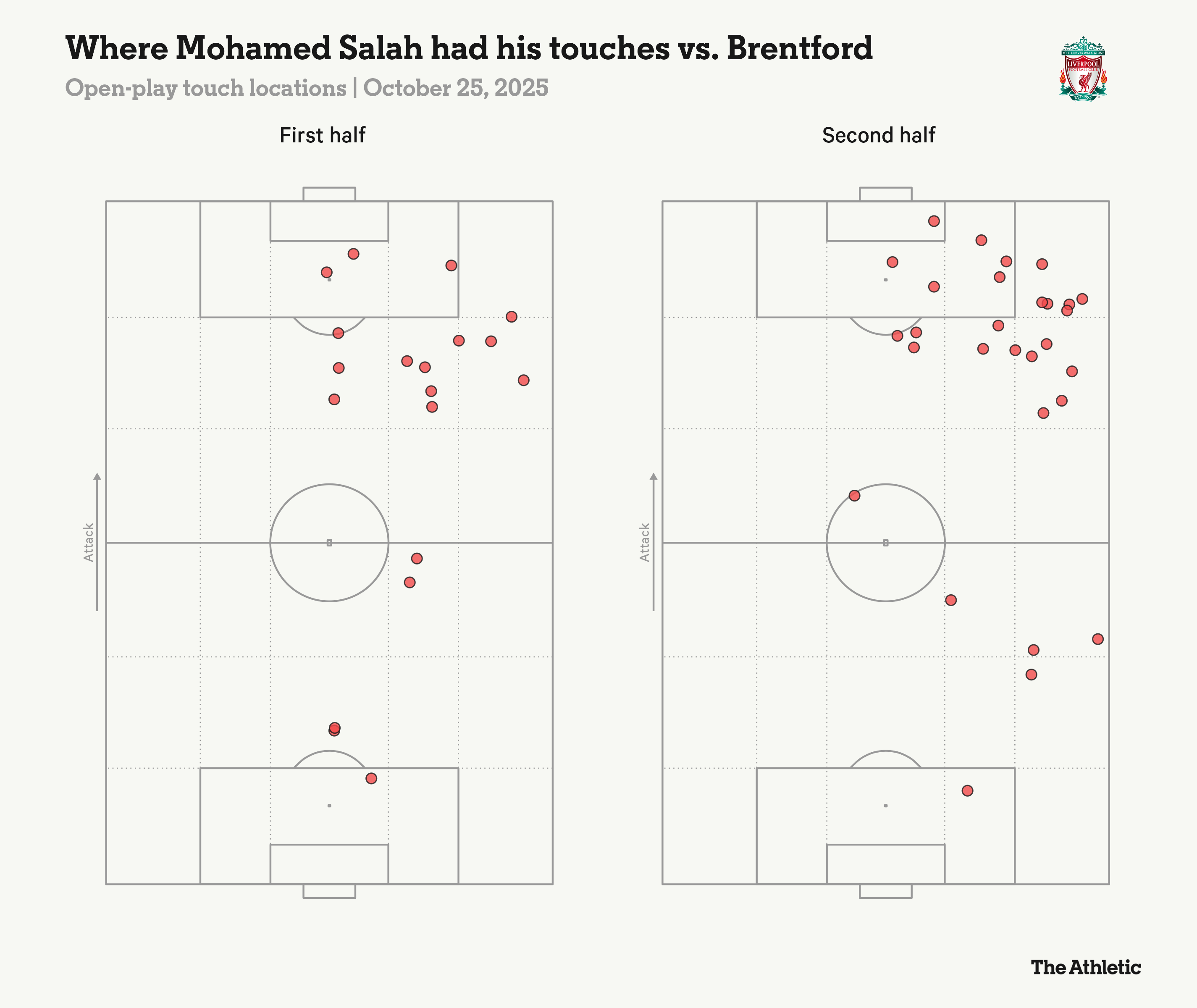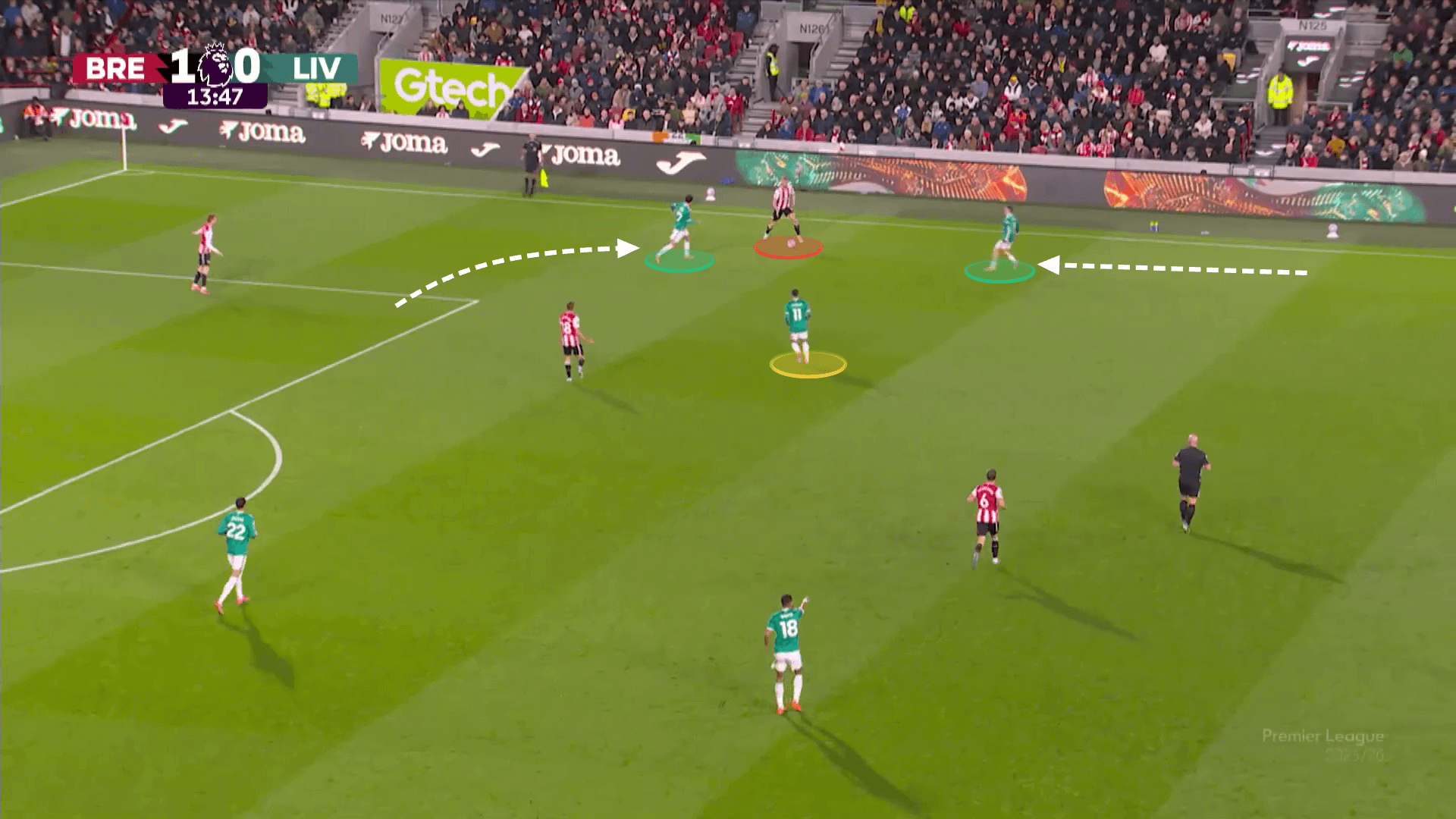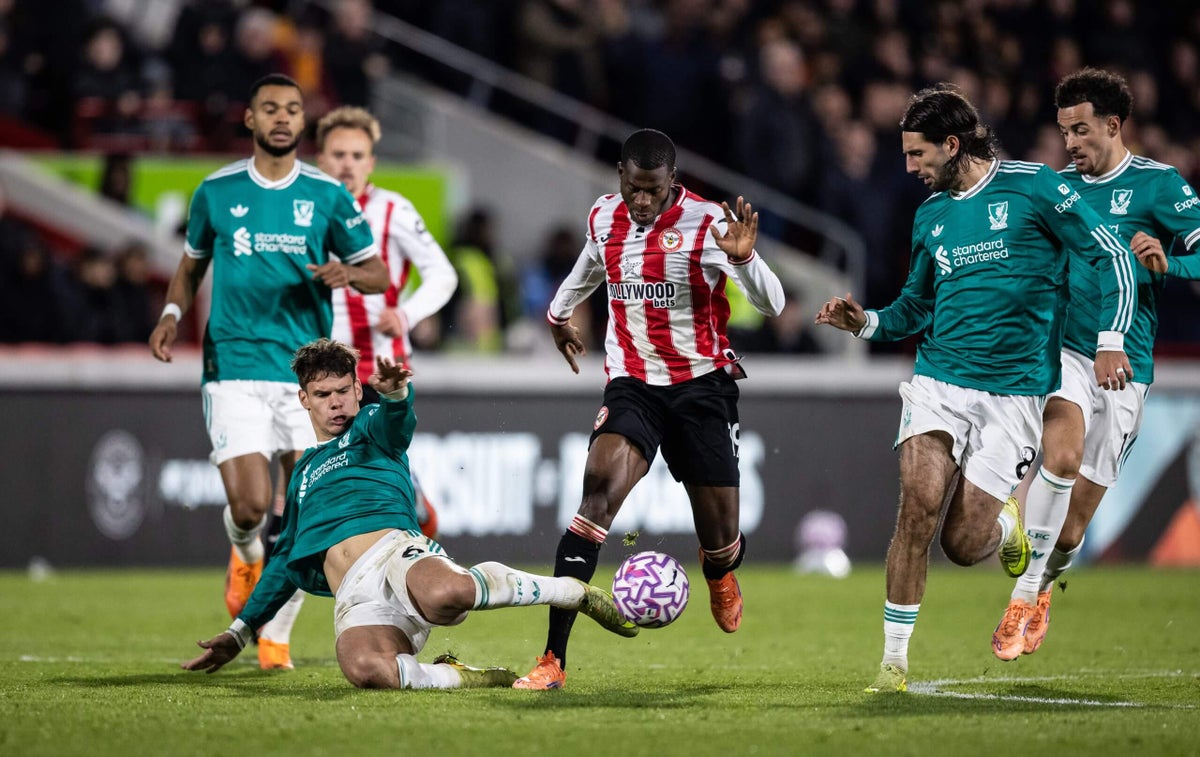Arne Slot cannot yet solve the problems that he so clearly sees.
“Teams have definitely (found) a playing style against us,” he said at the Gtech Stadium after Liverpool’s 3-2 defeat by Brentford. “We haven’t found the answer. Going 1-0 down after five minutes doesn’t help. We simply concede too many goals. It definitely has to do with changing a lot in the summer. I didn’t expect four losses in a row.”
Nine league matches into 2025-26, Liverpool look like collapsing as defending champions, akin to five years ago. The results are bad — four consecutive league defeats for the first time since February 2021 — and the underlying tactical problems are even worse.
All three Brentford goals were replicas of ones Liverpool have already conceded.
Dango Outarra hooked in after Kristoffer Ajer, outjumping Hugo Ekitike, flicked on Michael Kayode’s long throw. Left-back Milos Kerkez was caught sleeping.
This was a variation on Crystal Palace’s late winner last month, when Slot’s side switched off at the second phase of a long throw and right-back Jeremie Frimpong lost track of Eddie Nketiah.
Brentford’s second hit Liverpool hard in transition. Ekitike, not seeing much of the ball in the opening half, dropped in to connect with Dominik Szoboszlai. Under no pressure, he overhit the return pass. Brentford’s Mikkel Damsgaard was in more space than he should have had.
Without Ryan Gravenberch (injured) and Alexis Mac Allister (on the bench) in midfield, a trio of technicians in Florian Wirtz, Curtis Jones and Szoboszlai were set up for a high-possession game. They were not duellers.
Jones and Wirtz dropped off, letting Damsgaard find Kevin Schade, who ran on the blind side of Ibrahima Konate. It was similar to how Bournemouth exposed an over-expansive Liverpool on the opening weekend.
Schade’s first touch went across Konate and put him one-v-one against Giorgi Mamardashvili. The goalkeeper summed Liverpool up: unsure whether to stand his ground or retreat, eventually scampering backwards, and then wrong-footed by Schade’s finish.
Eintracht Frankfurt and Atletico Madrid have exploited Liverpool in Europe with counter-attacks and balls in behind.
Slot spoke pre-match about opponents playing more long balls. His claims, statistically, are valid, albeit against a league-wide backdrop of increased directness. Brentford were always going to lean into long balls. The issue was that Liverpool won only seven of 17 first-half aerial duels.
As tenuous as Brentford’s penalty for the third goal was — VAR reviewing Virgil van Dijk’s tackle on Ouattara to be on the 18-yard line, not outside the box — the foul was clumsy and had shades of the penalty Szoboszlai conceded in Istanbul, where Liverpool lost 1-0 to Galatasaray.
The point being that these problems run way deeper than this run, and were masked in early-season six-game winning streak — where Liverpool threw away 2-0 leads three times and still won.
Their recruitment was bold this summer. Slot has a top-heavy squad without much depth at centre-back or full-back, and the awkward dynamic of two expensive, world-class No 9s in Ekitike and Alexander Isak, and no natural solution.
Slow starts have been costly. Liverpool have conceded first in the last six matches in all competitions, their longest streak on Opta records, which date from 2013-14. Brentford’s directness pinned them back early on.
While Konate won the first long ball from Brentford goalkeeper (and former Liverpool No 2) Caoimhin Kelleher, after 90 seconds, Keith Andrews’ side were excellent on second balls. They hit another in behind, forcing Mamardashvili out from goal to sweep up. That happened again before six minutes were on the clock.

Brentford had waves of long throws. Their tactical blueprint stays the same — Kayode launching towards Ajer and Nathan Collins on the edge of the six-yard box, with Collins making a run from a start position at the near post — so Liverpool knew what to expect.
“It’s the only thing we did yesterday on the training pitch,” Slot said of defending long throws, with a wry smile. “It’s hard to win if they win more duels and second balls. Especially if that’s something they’re playing off.”
Slot spoke as though he knew exactly what to expect — physicality, a set-piece threat, directness — and was powerless to stop it.
He kept Salah wider in the second half in anticipation of facing a lower block, which happened towards the end, but it did not look like an attack-v-defence training exercise.
Liverpool have looked peculiar out wide all season. Kerkez offers threatening forward runs but is rarely found by left-winger Cody Gakpo. They had multiple one-twos break down, and another where Kerkez miscontrolled on the underlap, from which Brentford countered.

Their best moves came when Jones rotated to the left and provided defence-splitting passes for Kerkez. On one occasion, with three team-mates attacking the goal, he hit a cutback straight into Kelleher’s hands.

Kerkez did crash the back post to make it 2-1 from Conor Bradley’s low cross in first-half stoppage time. This was the only cross Bradley played in 62 minutes.
Even more puzzling is Salah’s role. He keeps taking up narrow attacking positions, playing back-to-goal more. He was reduced to playing inswinging crosses that did not come off.


When Liverpool are pressing, they let him cheat and stay high versus a centre-back. This means someone has to do his running against the opposition full-back, which was Wirtz versus Ajer.

The midfielder signed from Bayer Leverkusen this summer looked lightweight. Ajer dribbled past him more than once to split the press, and on another occasion he had space to check inside onto his right foot to hit a switch.
Salah’s 89th-minute consolation (to make it 3-2) goal from a high turnover came about because the hard-running Szoboszlai had replaced Wirtz in pressing Ajer. The Norwegian international, a converted centre-back, had Salah under control for the first 80 minutes and defended him touch-tight.

Slot’s description of “not helpful” for five of Liverpool’s last six games being away ones is fair. They have made three trips to the capital, plus Istanbul and Frankfurt, in the past month.
Periods like that, though, are litmus tests for champions. Liverpool wilted this time. They already have as many Premier League defeats as last season, and serious tactical problems to fix.

